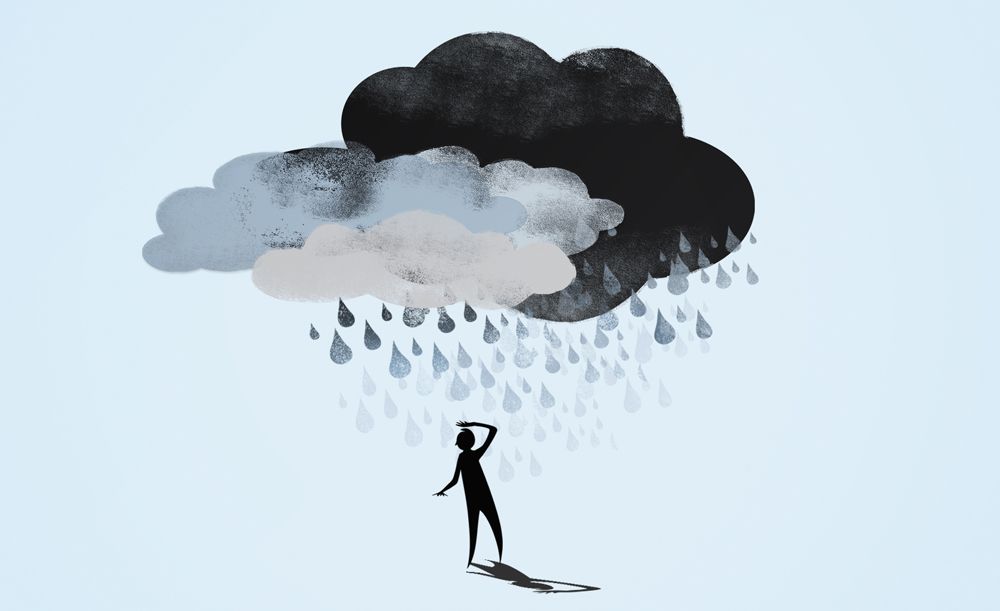
What does it mean to be depressed? Clinically depressed.
In her article “Social Media is Redefining Depression,” Anne-Sophie Bine introduces a young girl named Laura who fell victim to the idea of “beautiful suffering” on Tumblr. Laura would spend hours poring over the compilations of blogs on her Tumblr dashboard, craving to be ‘haunted and fascinating’ like the emaciated and self-harming people she saw. Laura was a part of a “wannabe depressed” community on Tumblr, a continuously growing group of people who attempt to couple beauty and suffering.
Laura labels herself and other members in this group “wannabe depressed” because they, though not clinically depressed, seem to embrace and perpetuate the imagery and rhetoric associated with torment. The blurring of this line between depression and ordinary negative emotion makes it difficult to tell who is actually- clinically- depressed.
But why would you “wannabe depressed?” Once upon a time in the recent past, it was unheard of for an individual to even admit to struggling with depression. Now, depression seems to be a trend. “When you look at secular trends and epidemiological research completed over the last several decades, there seems to be a slow and fairly consistent increase in levels of depression for each succeeding generation of teenagers,” says Dr. Mark Reinecke, chief psychologist at Northwestern Memorial Hospital.
Dr. Reinecke argues that the problem lies in the easily accessible online cultivation of this “beautiful sadness” through social media. Those who actively use social media, especially those under 35, are vulnerable and seek out self-identification and self-affirmation through others. Social media amplifies that vulnerability by giving it various different platforms. Young Laura agrees, saying that on social media, “you end up with a glorification of these conditions. There’s definitely a growing community of people feeding off of each-other’s strong emotions.”
Tumblr, Instagram, Facebook, Snapchat, and the like are then reduced to mediums of exhibitionism. The immediate gratification of compassion and pity that follows a simple post glorifies the behaviors displayed, under the false pretext that they are “deep” or “beautiful.” Over time, this glorification promises a sense of community and connectivity. Dr. Reinecke states that this continuous grouping of similar thought patterns and behaviors ultimately reinforce those very thoughts and behaviors. In order to be accepted or validated, people essentially have to advertise their suffering. Subconsciously then, individuals are choosing to suffer to gain acceptance.
For the “wannabe depressed,” constant participation in their community quickly transforms into the warped belief that the depression is real. Once someone becomes a part of an online community like the “wannabe depressed,” they are unlikely to leave because it would mean losing the people who accept and understand them. “My friends understand me. They get it,” Laura says. “I just wanted a sense of community, to find people who felt the same way I did without having to reach out on my own, because that was quite daunting.”
Dr. Stan Kutcher, psychiatrist and Sun Life Financial Chair in Adolescent Mental Health, believes that the problem is misinformation. People get their information from one another and on social media instead of from doctors and other reputable sources. “You see [folks] self-identifying as having that depression, but they don’t… They’re upset, or demoralized, or distressed by something,” confusing clinical depression with ordinary challenges. “When we used the word ‘depression’ for every negative emotional state, the word loses its meaning.” Kutcher deems this “over-diagnosis of normal human experience” the latest social trend.
The gratification these people seek is that sense of being heard, of being different, of being a part of something dark and beautiful. These individuals claim a depth to life that no one outside of the community understands.
So, what’s the solution? Obviously, social media will continue to exist, but how can we prevent people from becoming ensnared by communities like the “wannabe depressed?” Laura believes that the responsibility rests on the those seeking the attention. “If you don’t go out of your way to find those things, you won’t come into contact with them. A lot of [us] don’t really try to avoid it. It’s the responsibility of the people that go online.”
Dr. Kutcher, however, believes that the answer lies in training and education of the professional staff that responds to teens. “You just have to know what kind of questions to ask and understand what the answers mean.” The solution is to recreate the distinction between ordinary emotional states and clinical depression, educate those who are first responders to teens in need.
What do you think?
Posted on 01/22/2018 at 07:26 PM
| Monday | 7:00AM - 10:00PM |
| Tuesday | 7:00AM - 10:00PM |
| Wednesday | 7:00AM - 10:00PM |
| Thursday | 7:00AM - 10:00PM |
| Friday | 7:00AM - 10:00PM |
| Saturday | 9:00AM - 9:00PM |
| Sunday | 9:00AM - 9:00PM |
5376 Jonesboro Road,
Lake City, GA 30260
Phone. 404-931-4221
Email. psychfit@gmail.com